Haiti Prime Minister Ariel Henry Finally Resigns, Leaving Country to 'Transitional Council'
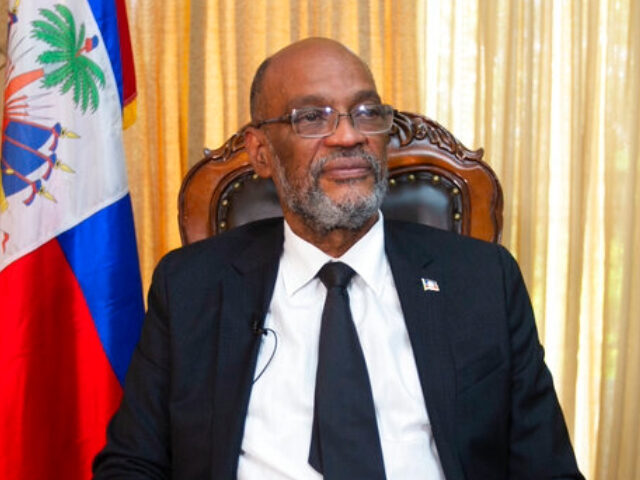 AP Photo/Odelyn Joseph
AP Photo/Odelyn Joseph
Haitian Prime Minister Ariel Henry formally resigned on Thursday after Haiti's “Transitional Council” was sworn in to lead the violence-ravaged nation following a lengthy negotiation process.
The Transitional Council will lead Haiti on a temporary basis, presiding over a period during which most institutions in the country barely function and violent gangs led by Jimmy “Barbecue” Cherizier have taken control of large swathes of the capital city Port-au-Prince. Former Economy Minister Michel Patrick Boisvert will act as interim prime minister until the council appoints a new head of state and cabinet of ministers.
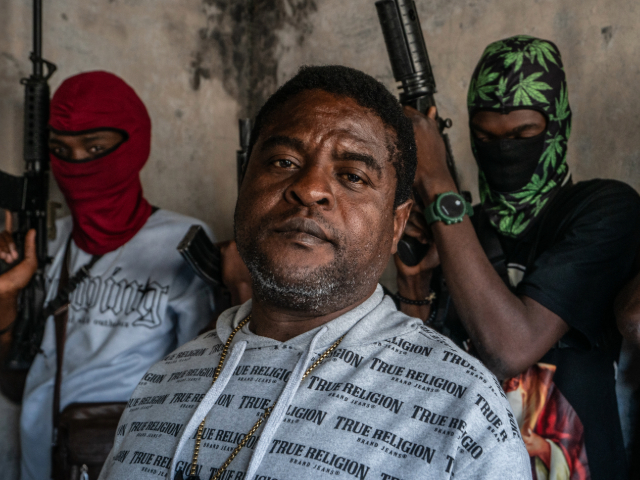
Gang leader Jimmy “Barbecue” Cherizier with G-9 federation gang members in the Delmas 3 area on February 22, 2024, in Port-au-Prince, Haiti. (Giles Clarke/Getty Images)
Henry, currently stranded in Puerto Rico, originally expressed his intention to resign in March as soon as a transitional council was established.
Lettre de démission du gouvernement du Premier ministre @DrArielHenry#Haïti pic.twitter.com/gRsTp7UWEF
— Primature de la République d’Haïti (@PrimatureHT) April 25, 2024
“I congratulate all the members of the government, the staff, the public administration, the security forces and all those who have accompanied me on this patriotic journey,” Henry's resignation letter, dated April 24, read. “We have served the nation in difficult times. I would like to thank all those who had the courage to face such challenges with me.”
“I sympathize with the losses and suffering endured by our compatriots during this period,” the letter continued. “On behalf of the government, I thank the Haitian people for the opportunity to serve our country with integrity, wisdom and honor.”
Haiti's Transitional Council, which was finally seated on Thursday after a slow process that spanned multiple weeks, is composed of nine individuals — seven of whom have voting power — chosen from the country's different political parties in negotiations overseen by representatives of the Caribbean Community (CARICOM) bloc.
Interim Prime Minister Boisvert described the council as a “Haitian solution” during his inauguration ceremony.
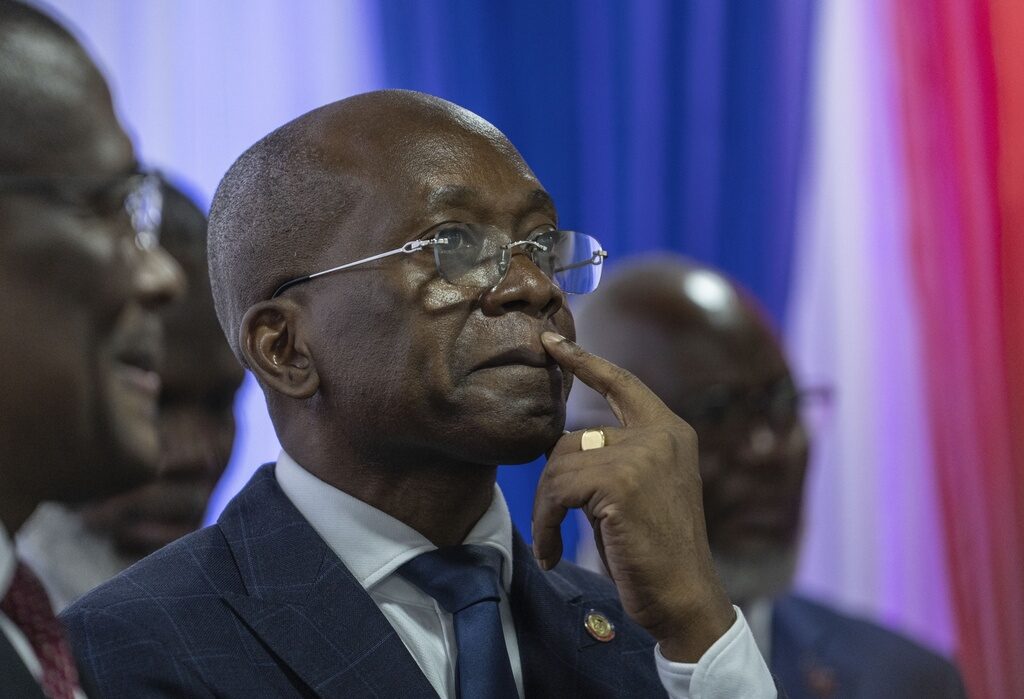
Michel Patrick Boisvert, who was named interim prime minister by the cabinet of outgoing Prime Minister Ariel Henry, attends the swearing-in ceremony of the transitional council tasked with selecting Haiti's new prime minister and cabinet in Port-au-Prince, on April 25, 2024. (AP Photo/Ramon Espinosa)
The council is tasked with organizing elections for Haiti, a country that has not had a president since 2021 after President Jovenel Moïse was shot dead in the presidential residence. The council's transitional mandate will end on February 7, 2026, when a newly elected president chosen in the yet-to-be-organized election should be slated to begin his or her term.
Regine Abraham, one of the transitional council's two non-voting members, asserted during the inauguration ceremony that Port-au-Prince has “literally been taken hostage,” stressing, “We are seeing the total collapse of our institutions and failure of a government.”
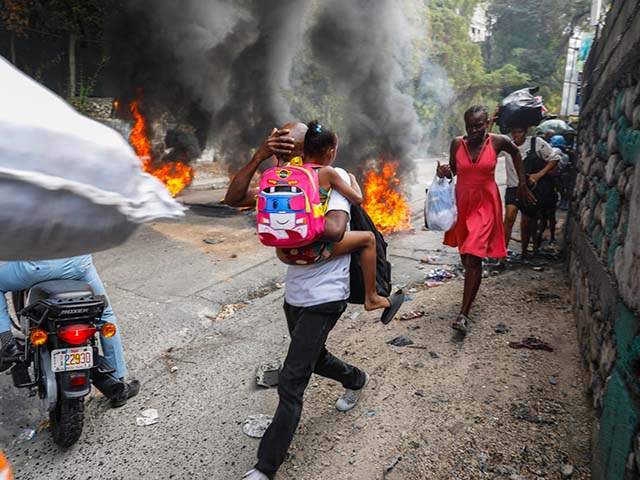
People walk past burning tires during a protest against Haitian Prime Minister Ariel Henry in Port-au-Prince, Haiti, on February 5, 2024. (AP Photo/Odelyn Joseph)
“Facing this unprecedented crisis, the entire population has recognized the urgent need of a firm hand to take us out of this spiral of despair and destruction,” she said.
Incidents of houses being set on fire and shootings in Port-au-Prince's downtown and Delmas areas reportedly took place while the council was being sworn in.
The dramatic escalation in gang violence left more than 2,500 dead between January and March, according to estimates from the United Nations Integrated Office in Haiti (BINUH). The violence has also led to hundreds of thousands of Haitians being internally displaced and millions of the nation's inhabitants facing severe famine.
Haiti's national police, one of the last remaining functional institutions in the country, continue to fight the violent gangs to regain control of the nation. At least 22 police buildings have reportedly been looted or set on fire, and 19 police officers have been killed or injured since the gang siege.
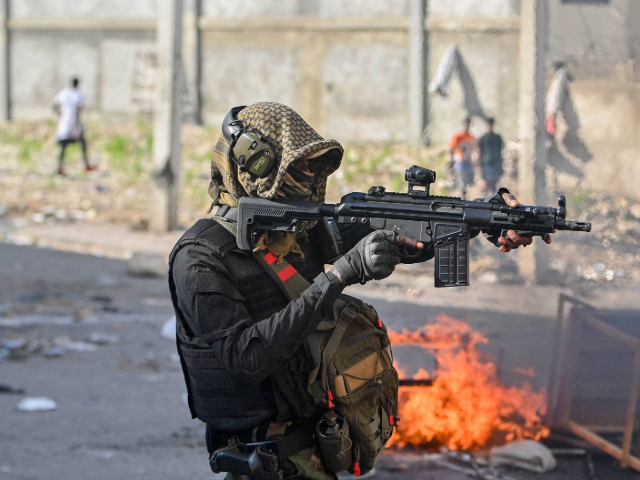
A policeman points a gun at protesters during a demonstration calling for the resignation of Prime Minister Ariel Henry in Port-au-Prince on February 7, 2024. (RICHARD PIERRIN/AFP via Getty Images)
“It is impossible to overstate the increase in gang activity across Port-au-Prince and beyond, the deterioration of the human rights situation and the deepening of the humanitarian crisis,” U.N. Special Envoy for Haiti Maria Isabel Salvador said at a U.N. Security Council meeting.
Christian K. Caruzo is a Venezuelan writer and documents life under socialism. You can follow him on Twitter here.
Source link

